
"The Black Dahlia" (2006) directed by Brian De Palma, based on one of James Ellroy's most famed novels, employs Elizabeth Short's story mainly as backdrop of an intoxicating noir atmosphere (Vilmos Zsigmond's cinematography was nominated to an Oscar) which manages to encapsulate the pulse of the decadent Los Angeles evoked in the classic 40s pulp film and novels. After a rigged boxing fight in benefit for the LAPD, Dwight 'Bucky' Bleichert (Mr. Ice) -played by Josh Hartnett-, teams up with Lee Blanchard (Mr. Fire) -played by Aaron Eckhart. Josh Friedman's screenplay follows like a monitor these two retired boxers, now detectives who are assigned to investigate Elizabeth Short's gruesome murder.
In this analysis of "The Black Dahlia" I want to bring up some clues that could have been overlooked due to the complexity of the characters and juxtaposition of the subplots. Although quite a few critics and disappointed Ellroy's readers didn't regard De Palma's version as doing justice to Elizabeth Short's life and misfortune, I think we should examine closely the original script to appreciate those details which couldn't be translated into the film due to time restriction (the director cut extends to 3 hours).

Scarlett Johansson plays a Lana Turner lookalike, the mysterious yet wordly blonde Kay Lake, Blanchard's girlfriend.

Madeleine Linscott (played by Hilary Swank) is a wealthy femme-fatale who was acquainted with Elizabeth Short and other aspiring actresses around La Verne’s lesbian club. She becomes Bucky's confidant and lover in order to shift the police's attention from her unstable family clan.

Madeleine Linscott: "[My father] bought rotten lumber and abandoned movie facades from Mack Sennett and built houses out of them. He's got firetraps all over LA registered to phony corporations... His 'good friend' George? Disfigured in a car crash while running Daddy some errands."
Emmett Linscott [Madeleine's father]: "1920. Hollywood was a cow pasture, but the silent flickers was booming. Georgie got work as a lighting man, and me building houses. Georgie got me introduced to Mack Sennett and I helped him build that housing project he was putting up -Hollywoodland- underneath that godawful sign."

There is a motif throughout "The Black Dahlia" that lays out Hollywood as a murky scene, a source of excruciating travails and obscenity. Also there is an element that disturbingly connects this film to "The Big Knife" (a sharp indictment of Hollywood directed by Robert Aldrich in 1955, inspired by John Garfield's real tribulations) which is symbolized by a wall painting featuring a freakish sad clown in both films, being in "The Big Knife" an anonymous portrait and in "The Black Dahlia" the portrait of Gwynplaine -a disfigured character from Victor Hugo's novel "The Man Who Laughs".

There is a scene where Lee, Kay and Bucky are watching a big screen projecting "The Man Who Laughs" (1928), a horror silent film directed by Paul Leni, based on Hugo's novel. Gwynplaine falls in love with Dea, a blind girl who reciprocates him despite of his hideous grin, caused by Dr. Hardquannone's surgical slash of his mouth. In the novel Gwynplaine and Dea drown in the sea and die.

George Tilden (Bill Finley) and Ramona Linscott (Fiona Shaw) are the equivalent of Gwynplaine and Dea, a pair of unhinged creeps ill-suited for living around normal people who find the same fate than Hugo's characters. The difference is the couple of freaks in "The Black Dahlia" are murderers.
Georgie was disfigured by Emmett Linscott as an act of vengeance when he discovers Madeleine is fathered by Tilden (an aspiring actor too) and later proceeds to carry a secret relationship with Madeleine when she grows up into adult age. This perverse affair provokes bouts of madness in Ramona, a pill addict "hophead", whose hatred for her daughter and failed romance with Georgie lead her to become Elizabeth's unexpected murderer.
"Georgie liked to touch dead things. I mean, his father was a surgeon", Emmett Linscott reveals to Bucky in the final part of the film. This is one of the most hidden clues in De Palma's exposition. In Georgie's mind, Elizabeth Short was already dead when she met him in the bungalow near Beachwood Canyon. Why this character would think so of an apparently lively, feisty girl like Elizabeth? Georgie Tilden had been a "handsome bastard" before his dreams of going to Hollywood were cruelly cut off by Mr. Linscott. His heart figuratively stopped at that moment of his disfigurement because his shallow and naïve ambitions perished at Emmett's jealous hands.

So Georgie figures Elizabeth is soulless after having seen her starring in a stag film. We could interpret the film's subjacent idea that Hollywood exerts on their regular players a deeply traumatic effect at best or even a moral extinction: Tinseltown as a hell of lost identities and mimetic souls.
There is an
allusion in the play 'The Value of Names' to Clifford Odets [author of 'The Big Knife'], John Garfield's onetime friend. "He was dead and gone even before he was dead," says the play's lead actor Jack Klugman of Odets, who named names in 1952 following a revival of Golden Boy and hours before John Garfield died. "They used to tear his posters off the theaters," Klugman said of John Garfield's female admirers.
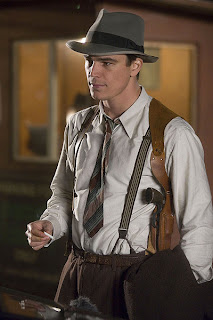
Josh Hartnett caused a similar furor between the female demographics half a century after John Garfield's peak of fame and death, especially through the war epic Pearl Harbor (2001), about the attack in 1941 propelling the USA into World War II. In his early 20s, Josh Hartnett shared some of Garfield's appealing traits, and his screen image represented an undeniable magnet for girls worldwide. Described by director Bruce Beresford as "tall and impossibly handsome", Josh Hartnett had a supple body and one of the most boyishly masculine faces in Hollywood: shy hazel eyes, and an unmistakably sexy smile due to the unique form that his zygomaticus sparked an illusion of dimples. "Hollywood doesn't need my love" was one of Hartnett's teasing quotes.

As the noir detective, Hartnett plays maybe his most masculine character so far in his career, despite Bucky enduring several moments of self-doubt and low self-esteem while struggling to find a solution to the Dahlia's puzzle murder.

"Many film noirs, however, do not just reproduce that 'melodrama of beset manhood' but also identify its source in the hero [...] by emphasizing the unreal appearance of the femme fatale which foregrounds her imaginary dimension. The power (and hold) of the femme fatale over the main character derives from the fact that she is an imaginary construct, so that an important part of the suspense derives from the question whether and how the main character will be able to liberate himself from the hold of his own imaginary". -“Crime, Guilt and Subjectivity in Film Noir” (2001) by Winfried Fluck.

Bucky experiences a meltdown when Madeleine confesses to him a one-night stand with the Black Dahlia: "I felt like I was sinking; like the bed was dropping out from under me. Madeleine looked like she was at the end of a long tunnel, captured by some kind of weird camera trick." 'Betty and I made love once that one time last summer.' Scared by her confession, he leaves Madeleine, although she begs him: “Bucky, stay, sugar, stay.”

"To a fighter, sex tastes like blood and resin and suture scrub. I wondered if some day that would ever be different," had been Bucky's ruminations before Kay held him mesmerized and later he added clandestine sexual trysts with Madeleine. In one of the early scenes, Bucky even jokes he's been saving himself for Rita Hayworth when Kay asks him if he has a girlfriend. That's another reference to the glitz and mythology of Hollywood in a film that is oddly more obsessed with the dark side of Tinseltown than Elizabeth Short's unsolved case. Some screen tests where Mia Kirshner plays a distressed Elizabeth (with a woeful face and sad smile) work as a romantic aubade amidst a confusing plot that meanders into vague descriptions of a throwaway film industry and police officers' corruption.

Madeleine, always acting with malice aforethought, is intent on driving Bucky insane, playing with his morbidly romantic fixation on Elizabeth. Although in the film Bucky's obsession is more understated than in the novel, in the original script we see that side explicitly: "That night I pictured myself the way I wanted Elizabeth to picture me -her knight in shining armor, a reborn two-bit harness bull who cracked the biggest unsolved homicide in California history. A war hero, a heavyweight champion."

One of the most important themes in noir is the confusion of identity. In that sense, "The Black Dahlia" is one of the purest examples in the whole genre. The femme-fatale in the story, Madeleine, identifies with Elizabeth's looks. Lee identifies Elizabeth with his little sister, Bucky sees himself reflected in Elizabeth's personality. Even Kay sees herself dragged in this twisted litany of obsession: "[Lee] loved us. And I love you. And if you hadn't seen so much of yourself in her you'd realize how much you loved me". Bucky has fallen in love with Elizabeth's image: "Bye-bye Betty, Beth, Betsy, Liz, we were a couple of tramps, too bad we didn't meet before 39th and Norton, it just might have worked, maybe us would've been the one thing we wouldn't have fucked up past redemption".

"Then there's the decomposing face of Lee 'smiling like the Dahlia, with worms creeping out of his mouth and the holes where his eyes used to be.' Ellroy built 'The Black Dahlia' (1987) around the great physical idea that clinches the first impression he gives of Beth's corpse: 'the mouth cut ear to ear into a smile that leered up at you, somehow mocking the rest of the brutality inflicted'. This 'death leer', the book's dominating image, joins the comic to the macabre and joy to anguish because of the critical distance it puts between victim and tormentor. [...] great art requires distancing. It's perspective and slant that makes us wonder if Beth, despite the brutal pain inflicted on her by them, didn't get the last laugh on Ramona and Tilden, that sorry pair whose sole claim on our memory comes from their connection with her." -"Like Hot Knives to the Brain: James Ellroy's Search for Himself" (2006) by Peter Wolfe
"They found him [Georgie Tilden] croaked in a parking lot downtown, just twelve blocks from where he'd dumped Betty Short. Just croaked. I hoped the evil ate him from the inside out, filling him with blackness..." (Bucky's Voice Over).

One of the most interesting scenes is the final confrontation between Madeleine and Bucky in the film, absent from the script and the novel.
Madeleine: "I think you’d rather fuck me than kill me. But you don’t have the guts to do either. You’re a boxer, not a fighter. You chose me over her. You’ll choose me over him. You’ll never shoot me. Don’t forget who I look like. Because that girl, that sad, dead, bitch. She’s all you have."
.jpg)
Bucky comes off as an irreducible Chandlerian detective in his duel against the ruthless femme-fatale, shooting her on the spot.

"I felt this reptile had to go down. And it’s not like he cleverly covered up the murder," Brian De Palma
explains Bucky killing Madeleine, a sudden change from Ellroy's original ending.
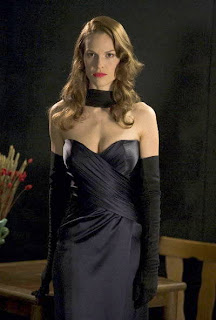
"She’s from a very wealthy family, so it’s probably not going to end well for Bucky." De Palma: "No."
So again, we reconnect another couple of misfits (Madeleine as a trashy nympho declassed from the high society, Bucky a flawed detective who supressed evidence in the case) with Dea and Gwynplaine from "The Man Who Laughs" and their bleak destination.



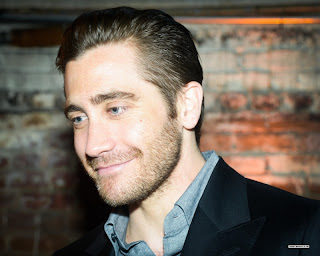








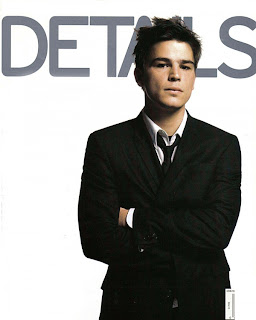.jpg)












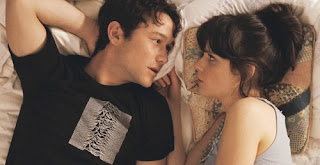





























.jpg)




